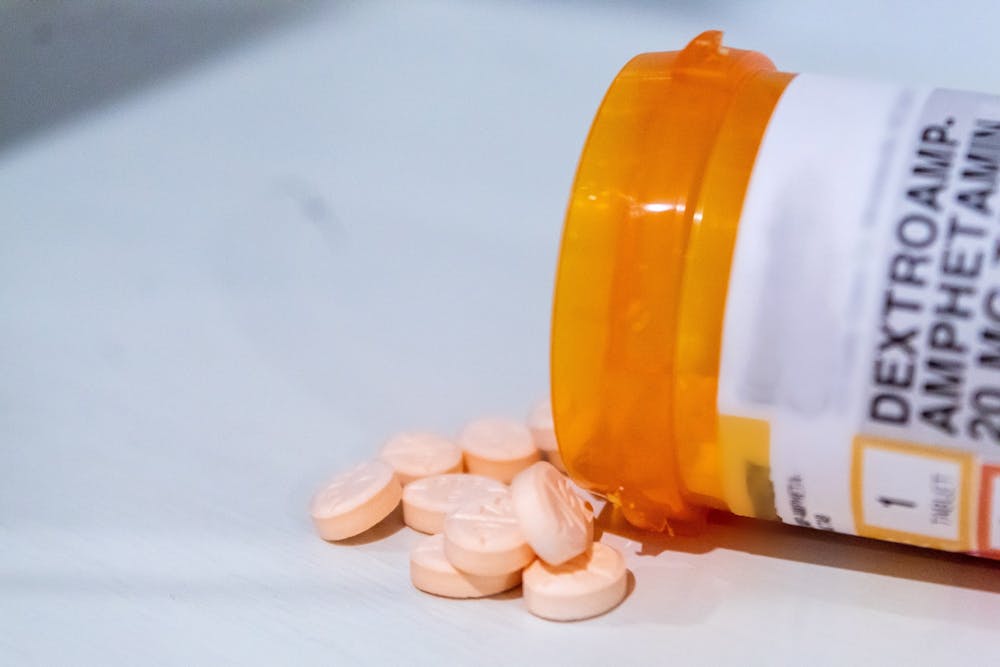Prior to the pandemic, approximately six million American children ages 3 to 17 were diagnosed with ADHD, with 62 percent of these children receiving medication as treatment, according to data from the CDC.
As University students approach final exams, students with ADHD attempting to refill their prescriptions of Adderall, Focalin, Concerta or other ADHD medications may find that their pharmacy is experiencing a shortage of their medication.
Dr. Kate Naper is a clinical manager for outpatient pharmacy and transitions of care at UNC Hospitals. She said the fluctuations in supply can be attributed to a variety of factors like manufacturing delays, a shortage active ingredients and increased demand.
“[The shortage] most directly impacts the immediate release formulations," she said. "So, some patients have therefore had to turn to other therapies and use them, which increases that demand, so then those medications too can be on shortage.”
Since the Franklin Street CVS shut down over the summer, pharmacies in the Chapel Hill area have been struggling with this exact issue. They are unable to meet the needs of all their customers due to the limitations that the Drug Enforcement Administration has on how much a pharmacist can order of a particular substance.
“It’s super hard, especially in college, to get a three-month long prescription, which I have been able to do in the past,” a student at the University said. “But now it is really hard to find a pharmacy with a three-month long supply.”
According to The Wall Street Journal, Adderall prescriptions increased to 41.4 million in 2021, a jump of about 10.4 percent. During the pandemic, companies like Cerebral, which offer online therapy for anxiety, depression and insomnia, prescribed medications such as Adderall via virtual health care.
However, this is no longer an option for many. Some major pharmacies like Walmart and CVS announced they will no longer be filling prescriptions from Cerebral and Done. — another online-based company helping treat patients with ADHD.
Demand for drugs like Adderall have increased in the last few years, while ADHD diagnoses have become more frequent. A labor shortage at Teva Pharmaceuticals, which is a large producer of Adderall, has also played a large role in the shortage.



